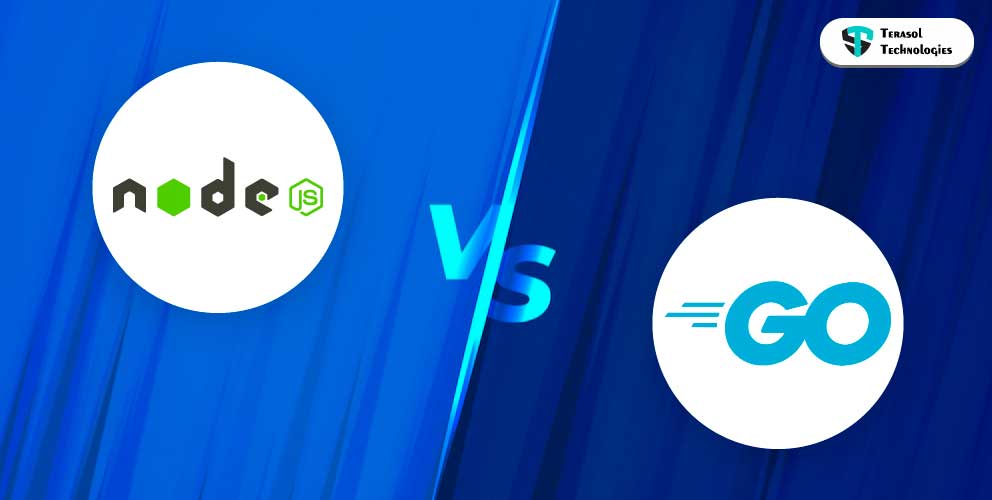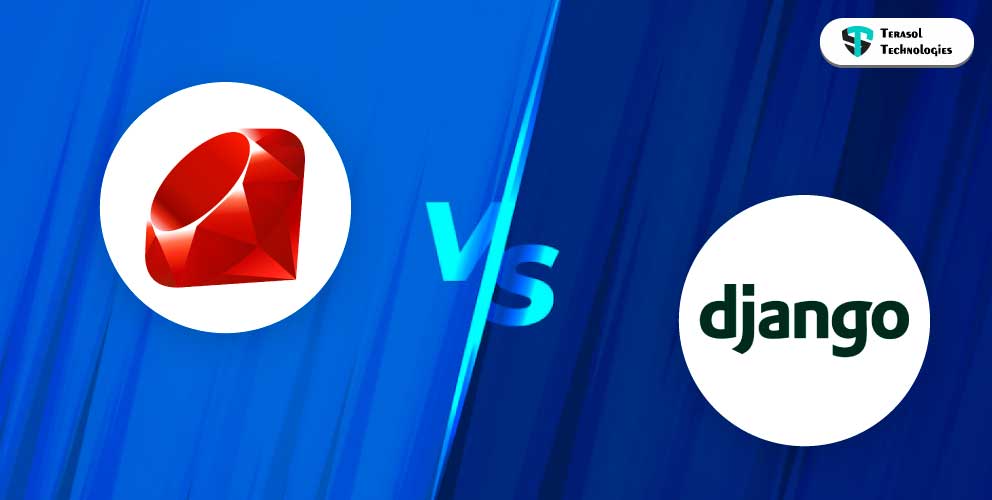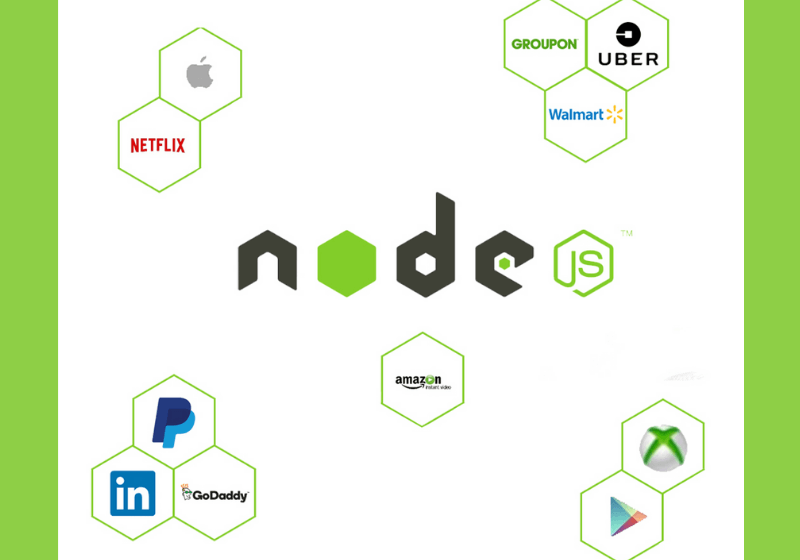Django vs Laravel vs Nodejs: Best Backend Framework To Choose
Taking a business online, whether through a website or a web app, has become important in this dynamic era of technology. It needs the selection of the best framework for your web project. Online frameworks are software packages that make developing sophisticated web apps simple. They also come with a slew of built-in features that cut down on development time. As a result, they allow for a fast transition from development to production.
Web development frameworks such as Django, Laravel, and Nodejs are all web-based backend development frameworks. Let's see which Django vs Laravel vs Nodejs is the best backend development framework option to work for your next project with web application development companies.
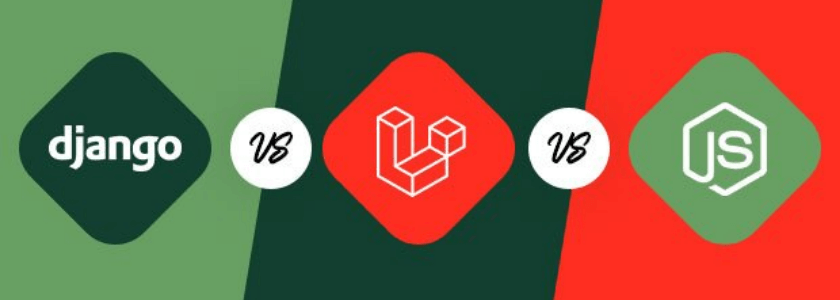
Web Framework is a software framework designed to speed up the web development process. A web framework, simply expressed, aids in the design, development, and publication of basic and sophisticated online apps and websites. Furthermore, the primary goal of all of these frameworks is to create a visually appealing and user-friendly online application. Laravel, Django, and node are all backend development frameworks that aid in the creation of web applications.
The comparison is on the fact that:
- Laravel is a PHP framework that is free and open-source and allows developers to use the MVC pattern for development.
- Django is a Python-based framework that allows developers to take an orderly approach to development.
- Nodejs is a runtime environment for JavaScript that is used for cross-platform development.
As a result, you may be wondering which framework to use for your next project: Laravel vs Django vs Node.js or Django vs Node.js.
Table Of Content:
Django vs Laravel vs Nodejs: Analysis
Django vs Laravel vs Nodejs: Comparison
Django vs Laravel vs Nodejs: Analysis
What is Laravel Backend Development Framework?
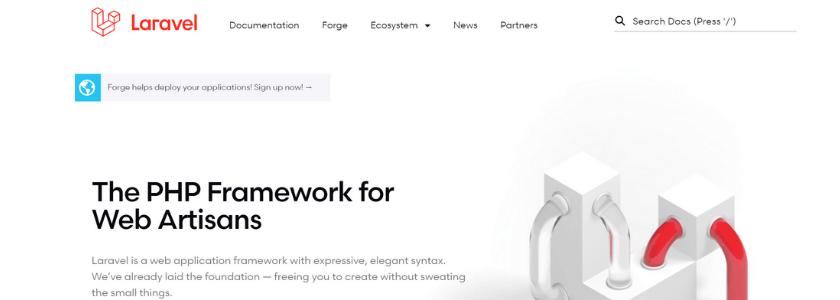
Laravel is an open-source full-stack PHP framework that was launched years after Django and was created by Taylor and Otwell, also developers must understand PHP basics to utilize Laravel. Laravel comes with a bundle of features that make much of the development process easier and faster.
Build stunning websites with Laravel's capabilities to keep your website one step ahead of the competition and get a competitive advantage. You can always rely on Laravel whether you're building a small or large web application. The majority of Laravel-based applications are for a content management system.
Pros:
- Laravel backend is an amazing PHP framework option.
- The Laravel backend framework is extremely capable of managing problems and informing users about them via error messages.
- Because it is MVC-based, the developer can write PHP and HTML codes in one.
- Laravel provides out-of-the-box settings to make setup and authentication easier. In terms of coding, Laravel provides next-level security.
- The code skeleton, database structure, and migration are all handled by Laravel's command-line tool.
Cons:
- It has very little built-in support and may need third-party solutions to help with this problem.
- It is a bit sluggish, and developers must be proficient in PHP before working with Laravel.
- Laravel is still under development, and unlike a few other frameworks, its composer isn't that good.
When to use Laravel Backend Framework?
The Laravel framework may be used for the following:
- Stock management, article management, and lite-CRM are just a few of the features available.
- To run a survey website online.
- For e-learning apps or interactive websites with a high volume of users.
- A few companies that use Laravel are BBC news, Pfizer, Crowdcube, etc.
What is Django Backend Development Framework?
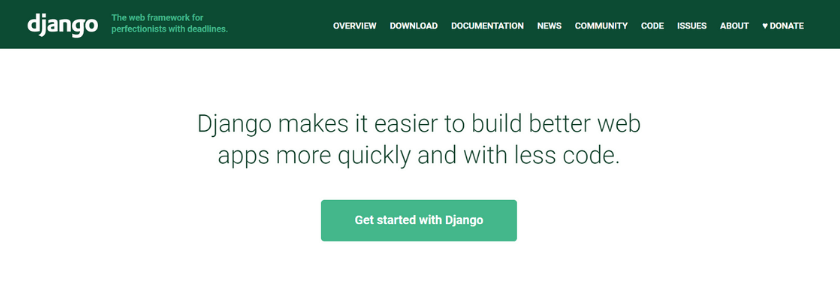
Django is a customizable and lightweight web development backend framework based on Python. Its design follows the Model View Template (MVT) paradigm. In 2005, Django was released onto the market. When it comes to working on complicated projects, Django has grown in popularity among developers over the years. Django encourages rapid development by promoting a systematic and orderly approach and quality design. The USP is the simplicity with which Django can easily integrate solutions to save development time.
Pros:
- Django is backed by a fantastic community of developers all around the world.
- High scalability.
- Django follows the KISS (Keep It Short & Simple) and DRY (Don't Repeat Yourself) principles.
- Security vulnerabilities, such as SQL injection, cross-site scripting, and cross-site request forgery, may be avoided using it.
- It comes with a plethora of libraries and assistance modules.
- Django Backend has Enhanced Ecosystem.
Cons:
- Real-time web applications are not supported by Django backend framework.
- It's built entirely on the ORM.
- The fact that Django is monolithic, which implies it is a single-tiered software application, is one factor that discourages developers from adopting it.
- Before implementation, it is necessary to know the language.
When to use Django Backend Framework?
You can go for Django when:
- You want to create a web application or a backend for an API.
- You wish to utilize open-source and free software.
- To go quicker, you must deploy and modify rapidly.
- You want to include cutting-edge technology into your software, such as Machine Learning.
- In case you wanted to work on complex projects.
- Django is used in Companies like Instagram, Firefox, Quora, Facebook, and many more.
What is Nodejs Backend Development Framework?
Node.js is a full-featured server browser as well as a framework. In basic terms, it's an open-source JavaScript-based runtime environment that's essential for creating cross-platform apps. One of the most popular backends web frameworks is NodeJS. It features asynchronous and event-driven I/O APIs. The fact that Node operates on a single thread is one of the main reasons why developers like it. The whole server is event-driven and is triggered when callbacks are received.
Pros:
- Projects by Nodejs are easily scalable, offer great support in form of libraries, and are adaptable.
- Because this backend framework leverages Google's V8 JavaScript engine, Node.js makes code implementation easier and quicker.
- Aa javascript operates in a single thread, thus, handle requests from several clients.
- It is easy to learn and comes with a fantastic package manager.
- A single code works great on both the client and server sides.
Cons:
- Due to the lack of a strong library in js, developers must rely on third-party libraries to do various tasks.
- Working with a relational database is tricky.
- Node.js uses asynchronous programming, it may be challenging to comprehend and work with for some developers.
- Callback sometimes leads to tons of nested callbacks.
When to use Nodejs Backend Framework?
One can use the Nodejs backend framework when,
- Node.js are used for real-time apps, particularly real-time chatting and messaging.
- Node.js is also used to create collaborative software.
- Because its modules allow it to construct both reading and writing data streams, Node.js is ideally equipped to handle data streaming.
- To develop and deploy microservices.
- You want to create great APIs.
- Companies that use Nodejs are Netflix, Uber, Paypal, etc.
Django vs Laravel vs Nodejs: Comparison
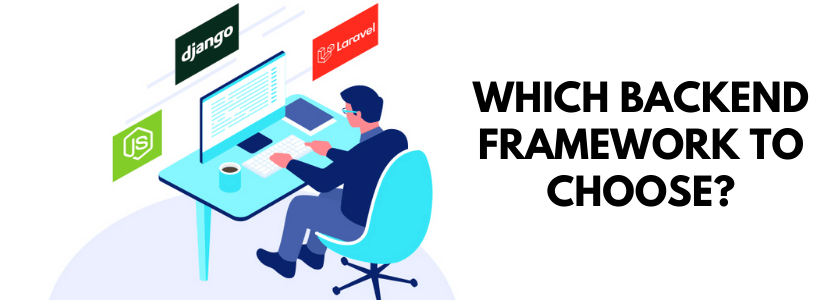
1. Base Framework
Laravel is a PHP based backend framework that follows the MVC (Model-View-Controller) paradigm. It is an open-source web application framework, that is praised by many developers across the world for its outstanding features and performance.
Django follows the MVT (Model View Template), which is based on the Python programming language. This framework's major goal is to encourage programmers to produce code that is both effective and efficient.
NodeJS is a free and open-source framework that runs on the V8 JavaScript Engine in Browser. The fundamental goal of NodeJS is to enable developers to create the most efficient web apps possible. It's mostly utilized in the development of web/app servers and the Internet of Things.
2. Scalability and performance
On the subject of Laravel vs Django vs Nodejs, as soon as you start generating and creating numerous versions of the application, scalability in Laravel gets complicated. Furthermore, it does not perform as well as the other two frameworks. Django backend framework is beneficial in cross-platform projects and offers next-level scalability, allowing a developer to manage workflow with ease. NodeJs has excellent scalability, because of its non-blocking and asynchronous programming characteristics.
3. Community
Laravel has 66.6k stars and 6,522 commits on the GitHub platform. Django has more than 59.8k stars and 30,034 commits on the GitHub platform and Node.js has more than 81.9k stars and 34,580 commits on the GitHub platform.
So, Node.js community support outscores the other two in the battle of Node.js vs Django vs Laravel comparison.
4. Learning Curve
On comparing Django vs Laravel vs Nodejs, the learning curve for Laravel is steep. It does, however, come with a slew of tools, including Laracasts and extensive documentation. If you're familiar with Python's syntax, you'll have no problem getting started with the Django framework. It's also described as developer-friendly. You will have no trouble learning NodeJS if you are familiar with JavaScript. However, owing to its asynchronous programming, NodeJS can be difficult to code at times.
5. Development
Laravel is based on PHP and has a slower development time than the other two frameworks. Django has a large number of plugins that help to reduce the time it takes to complete tasks.
NodeJS works on a wide range of computers. Furthermore, it is capable of handling a wide range of demands.
6. Architecture
Django has Model- View- Template architecture whereas Leravel has Model- View- Control architecture. Unlike Nodejs is event-driven.
7. Customizability and Security
Node.js offers the most custom modification capabilities, as it is supported by JavaScript.
Django requires a lot more complex when it comes to customization. Laravel, on the other hand, necessitates the use of third-party tools to add and customize the website.
Security of Django is the best, followed by Laravel. Even though the node is very- sophisticated, it might contain flaws and go undiscovered for a longer length of time.
Which Backend Development Framework To Choose: Django vs Laravel vs Nodejs?
Our comparison of Django vs Laravel vs Nodejs comes to a close here. To be honest, there isn't a single framework that can be used for every web application. We compared the three frameworks on several factors, including community, framework base, scalability and performance, clean architecture, learning curve, rapid development, and security.
When it comes to selecting the best suitable backend framework, it all boils down to the technological needs that your clients have.
If you have any idea of web development and want our software development company to help with the development of web applications, feel free to contact us.
